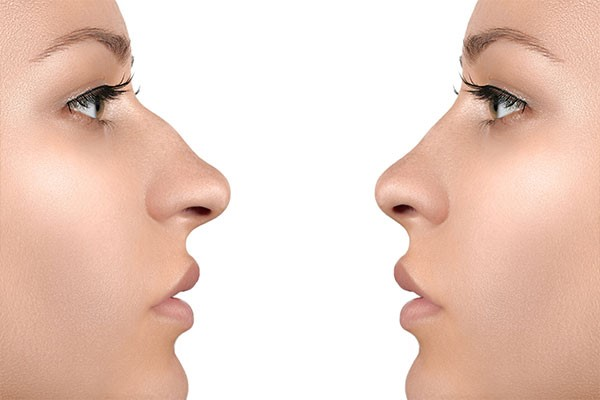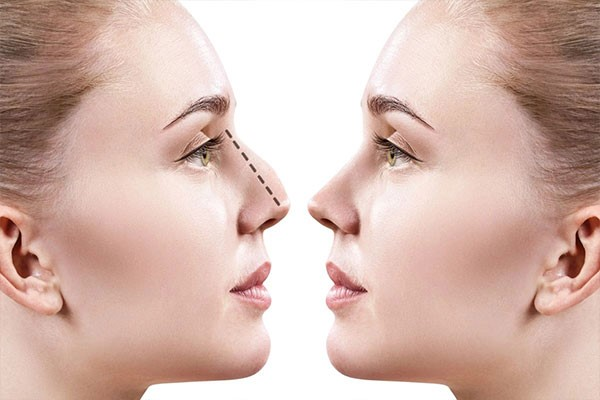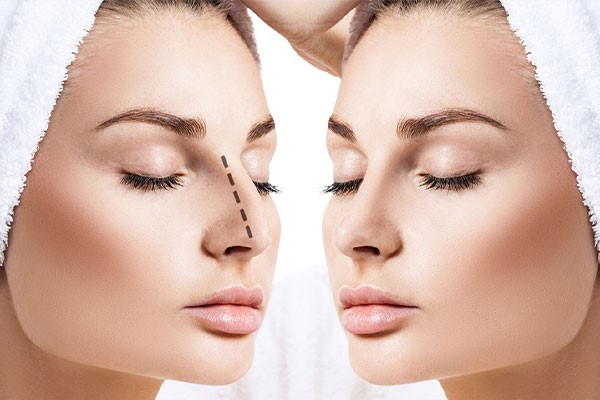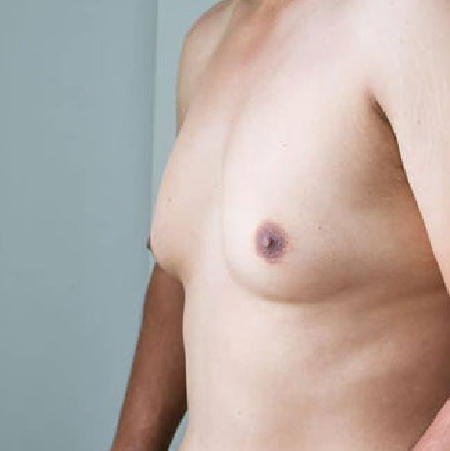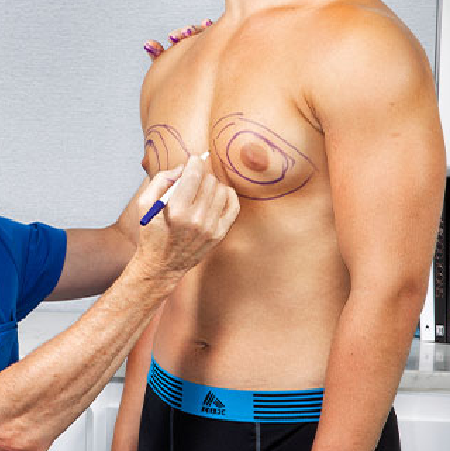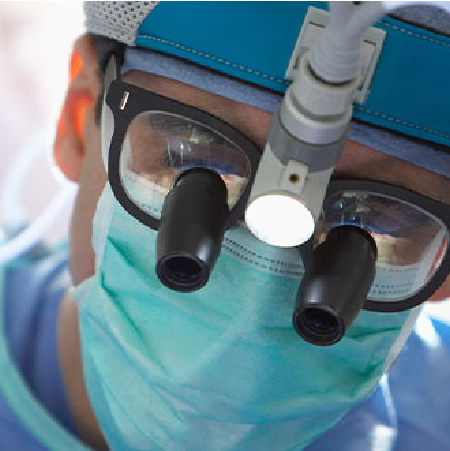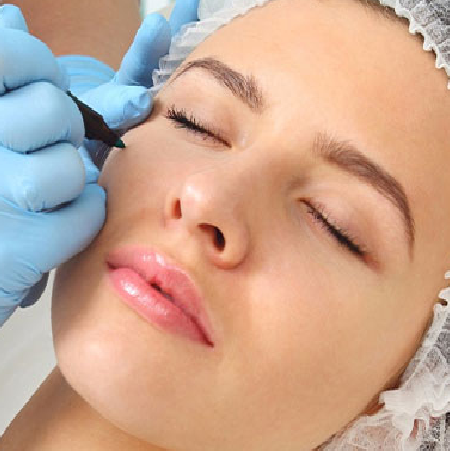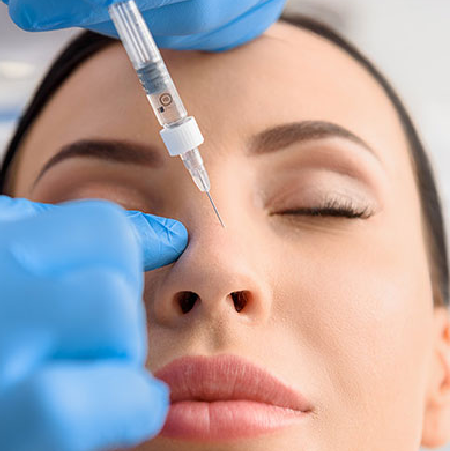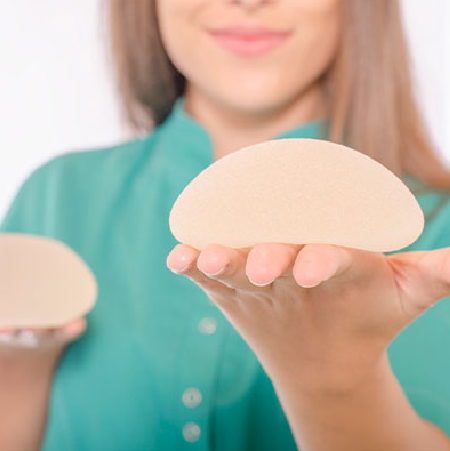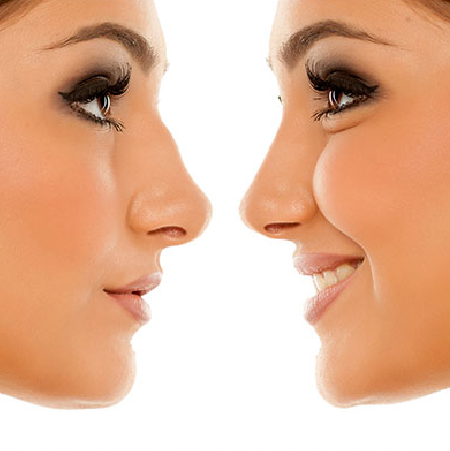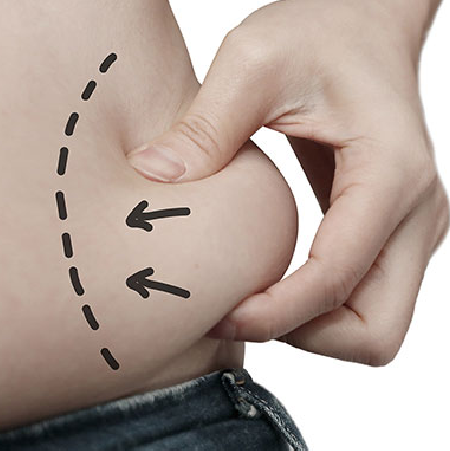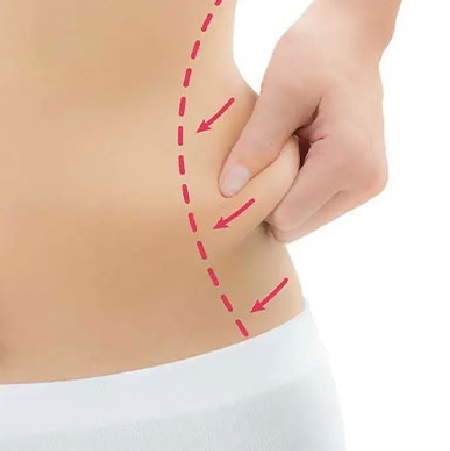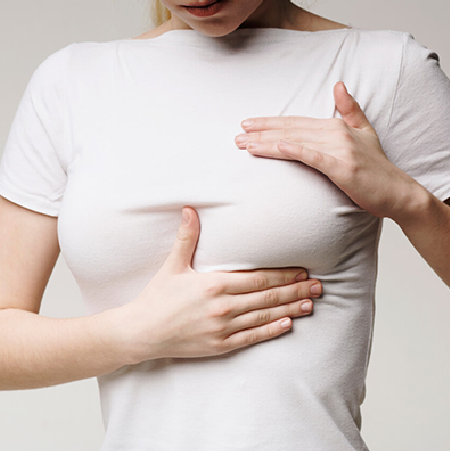Care after rhinoplasty surgery
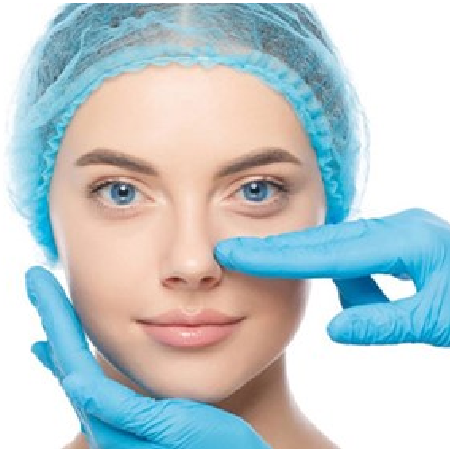
Rhinoplasty, sometimes known as a “nose job,” is a surgical operation that modifies the nose’s appearance and shape. Although though rhinoplasty is a frequent and generally safe treatment, it does need some recovery time and aftercare to guarantee a speedy recovery and the best possible results. In order to encourage healing and lower the risk of complications, we will go over some post-nose job care guidelines in this article.
- Comply with your surgeon’s directions.
Your surgeon will give you specific aftercare instructions, such as how to care for your nose, what drugs to take, and what activities to avoid. It is critical to carefully follow these directions to guarantee optimal healing and to reduce the possibility of problems.
- Keep your head up.
It is critical to keep your head elevated as much as possible during the first week following surgery, particularly when sleeping. This will aid in the reduction of swelling and bruising in the region, as well as the promotion of healing.
- Apply cold compresses
Applying cold compresses to your nose can help reduce swelling and discomfort after your surgery. Employ a clean, moist cloth or a bag of frozen peas wrapped in a towel and apply it to your nose for 15-20 minutes at a time, many times a day.
- Avoid strenuous activity
Strenuous activity can increase blood flow and swelling in the nose, which can slow down the healing process. Avoid any activities that may cause your blood pressure to increase, such as exercise, lifting heavy objects, or bending over.
- Avoid smoking and alcohol
Smoking and drinking might slow down the healing process and raise the risk of problems following surgery. Avoid smoking and drinking alcohol for at least two weeks after your surgery.
- Use saline nasal spray
Your surgeon may recommend using saline nasal spray to keep your nasal passages moist and promote healing. Use the spray as directed, several times a day.
- Avoid wearing glasses or sunglasses
Wearing glasses or sunglasses can put pressure on the nose and interfere with the healing process. Avoid wearing them for at least four weeks after your surgery.
- Be patient.
It can take several weeks or even months for the swelling and bruising to subside, and the final results of your rhinoplasty to become apparent. Be patient and follow your surgeon’s recommendations for aftercare to obtain the greatest possible outcome.
Finally, aftercare for a nose job in Iran is critical to improve healing and limit the chance of problems. Follow your surgeon’s instructions carefully, keep your head elevated, apply cold compresses, avoid strenuous activity, smoking and alcohol, use saline nasal spray, avoid wearing glasses or sunglasses, and be patient. With proper care and patience, you can have a lovely, natural-looking nose for many years.
The first day after rhinoplasty surgery
The first day after rhinoplasty surgery might be a little daunting as your body adjusts to the modifications made during the procedure. Here are some suggestions to help you get through the first day after your rhinoplasty surgery.
- Take a break and unwind.
It is critical to rest and relax as much as possible following your rhinoplasty surgery. Because of the anaesthetic used during the surgery, you may feel sluggish and tired, and your body will require time to recuperate. Spend the first day following surgery relaxing in bed or on the sofa, and avoid any vigorous exercise or lifting.
- Comply with your surgeon’s directions.
Your surgeon will give you detailed advice on how to care for your nose following the rhinoplasty operation. This may include taking any prescribed pain relievers as directed, applying cold packs to your nose to reduce swelling, and not blowing your nose. To ensure that your nose heals properly, it is critical that you carefully follow your surgeon’s recommendations.
- Maintain proper hydration and nutrition.
Drinking plenty of water and consuming nutritious foods can help to speed up the healing process. To recover, your body requires nutrition and moisture, so drink plenty of water and consume nutritious meals like fruits and vegetables.
- Keep your head up.
Elevating your head might assist to minimize swelling and facilitate recovery. For the first several days following surgery, sleep with your head raised on pillows. Moreover, avoid bending over or carrying large things that may cause blood to rush to your head.
- Be kind with yourself
While you may be tempted to resume your normal routine straight after, it is critical to relax for the first few days after surgery. Wearing glasses, participating in sports, or rigorous activity are all activities to avoid putting pressure on your nose.
To summarize, the first day after rhinoplasty surgery can be challenging, but by following these tips and your surgeon’s instructions, you can assist in the development of healing and prevent discomfort. Remember to be patient and do things slowly, and you’ll be enjoying your new nose before you know it!
Pain after rhinoplasty surgery
It is typical to endure some discomfort following rhinoplasty surgery. The degree of pain you feel will be determined by the extent of your operation and your own pain tolerance. Within the first few days following surgery, most patients describe discomfort or pressure in the nasal region. Your surgeon will prescribe pain medication to help you manage the discomfort while you recuperate.
Use your pain medication as directed by your surgeon to help control your discomfort after surgery. You can also use cold packs to your nose for the first few days after surgery to help reduce swelling and pain. Aspirin and ibuprofen should be avoided as these drugs might increase your risk of bleeding.
Nausea after rhinoplasty surgery
Another typical complaint experienced by people following rhinoplasty surgery is nausea. This is frequently due to the effects of anaesthesia and the body’s adjustment to the modifications made during the treatment. Also, some individuals may develop nausea as a result of ingesting blood during the procedure.
Rest and relax as much as possible after surgery to assist with nausea. Avoid heavy or oily foods in favor of light, easy-to-digest meals such as broth or crackers. You might also try drinking ginger tea or taking ginger pills, since ginger has been shown to aid with nausea.
Contact your surgeon if your nausea persists or worsens. They may be able to prescribe medicine to assist control your symptoms or give you more advice on how to relieve your pain.
In conclusion, people who have had rhinoplasty surgery may endure discomfort and nausea. While these symptoms are unpleasant, they are typically transient and may be treated with adequate care and attention. Follow your surgeon’s post-operative instructions, take your pain medication as directed, and call your physician if you have any severe or persistent symptoms. You may assist guarantee a smooth and effective recovery following rhinoplasty surgery by exercising patience and care.
Eating and Drinking after rhinoplasty surgery
These are some dietary and drinking recommendations following rhinoplasty surgery:
- Keep hydrated
Drink plenty of fluids after rhinoplasty surgery to avoid dehydration and aid your body’s healing. Drinking using a straw, on the other hand, should be avoided for at least a week following surgery since the sucking action might induce bleeding and edema in the nasal area. Drink from a cup instead, or pump fluids into your mouth using a syringe.
- Eat only soft foods.
Eating soft, easy-to-digest meals in the days following surgery can help reduce discomfort and the chance of problems. Soup, mashed potatoes, yogurt, pudding, and smoothies are all wonderful choices. Avoid foods that are crunchy, chewy, or spicy since they might irritate the nose and increase the chance of bleeding.
- Avoid drinking and smoking.
Drinking and smoking can impede recovery and raise the risk of problems following rhinoplasty surgery. It is critical to refrain from consuming alcohol and smoking for at least two weeks following surgery.
- Take your time chewing
Eating might be difficult and unpleasant following rhinoplasty surgery, so chew your food slowly and carefully. Avoid opening your mouth too wide, since this might produce pressure on your nose and pain.
- Keep your head up.
Eating and drinking with your head raised can help minimize edema and improve recovery. While eating and drinking, keep your head raised on cushions and sit erect.
Antibiotics after rhinoplasty surgery
Antibiotics may be administered by your surgeon following rhinoplasty surgery to prevent infection and assist in the healing process. Antibiotics are a type of drug used to treat bacterial infections, and when taken correctly, they may be quite successful.
Rhinoplasty is a surgical technique used to reshape the nose. The surgeon creates incisions in the skin to provide access to the underlying tissue, cartilage, and bone during the surgery. This can allow germs to enter the system and produce an illness.
Antibiotics are frequently recommended following rhinoplasty surgery to avoid infection. This is due to the fact that surgical wounds can serve as a breeding ground for germs, and the immune system may be weakened following surgery, making it more difficult for the body to fight infections.
Antibiotics will be administered based on a number of criteria, including the patient’s medical history, the type of operation done, and the risk of infection. Penicillin, cephalosporins, and macrolides are common antibiotics administered following rhinoplasty surgery.
Painkillers after rhinoplasty surgery
After rhinoplasty surgery, painkillers may be recommended to assist control pain and discomfort throughout the recovery phase. Rhinoplasty is a surgical surgery that reshapes the nose, and the recovery period can be painful for certain individuals.
Pain relievers of various sorts may be provided following rhinoplasty surgery. Nonsteroidal anti-inflammatory medicines (NSAIDs) like ibuprofen and aspirin are examples, as are harsher painkillers like codeine or oxycodone.
NSAIDs are commonly used to treat mild to severe pain and inflammation. They function by preventing the body from producing particular molecules that cause pain and inflammation. When taken as indicated, NSAIDs are typically safe and effective, although they might induce stomach trouble, nausea, and dizziness.
Opioids are stronger medicines that are normally reserved for more severe pain. They act by preventing pain signals from reaching the brain and can be quite useful in pain management. Opioids, on the other hand, can be addictive and have a higher risk of side effects such sleepiness, nausea, and constipation.
While using pain relievers following rhinoplasty surgery, it is critical to follow your surgeon’s advice. This involves taking the prescription exactly as recommended, as well as abstaining from alcohol and other medications that may interfere with the opioids. If you have any adverse effects or questions regarding your pain management, talk to your surgeon. They may be able to change your medication or propose alternate pain relief strategies.
Sleeping after rhinoplasty surgery
Sleeping can be difficult following rhinoplasty surgery since the healing process can produce discomfort and edema, making it difficult to find a comfortable resting posture. Nonetheless, adequate rest is required for a full recovery.
Here are some recommendations for sleeping after rhinoplasty surgery:
- Keep your head raised when sleeping: Sleeping with your head elevated might help minimize swelling and pain. You may accomplish this by using pillows to prop up your head or sleeping in a reclining chair.
- Avoid sleeping on your stomach or side: Lying on your stomach or side can put pressure on your nose, causing pain and swelling. Instead, try sleeping on your back.
- Employ a travel cushion to keep your head high and prevent you from rolling onto your side or stomach.
Bruising and Swelling after rhinoplasty surgery
Bruising and swelling are frequent post-rhinoplasty side effects. They occur as a result of the surgery’s incisions and manipulation of tissues, which can cause the body to react with swelling and bruising.
Here are some suggestions for dealing with bruising and swelling following rhinoplasty surgery:
- Use cold compresses: Cold compresses can aid in the reduction of swelling and bruising. Several times a day, apply ice packs or cold gel packs to your nose for 15 to 20 minutes at a time. To prevent your skin from frostbite, cover the compress in a towel.
- Keep your head up: Keeping your head elevated might assist minimize swelling. Throughout the day, sleep with your head raised on pillows or relax in a reclining chair.
- Avoid heat: Since heat can cause edema, avoid hot showers, saunas, and direct sunlight for at least two weeks following surgery.
- Use Arnica supplements: Arnica is a natural product that can aid in the reduction of bruising and swelling. Before using any supplements, consult with your surgeon.
- Be patient: Bruising and swelling from rhinoplasty surgery might continue for many weeks. Let your body to heal at its own rate and be patient.
Washing after rhinoplasty surgery
Cleaning your face after rhinoplasty surgery is a vital part of the healing process. Cleaning the surgery site properly helps to avoid infection and improves recovery.
Following your surgeon’s precise recommendations for bathing following rhinoplasty surgery is critical, since these may vary according on the unique instance and surgical method employed. Most surgeons advise patients to avoid having the surgical site wet during the first several days following surgery. This includes avoiding showers, baths, and getting water on the nose.
Removal of the splints and sutures after rhinoplasty surgery
Splints and sutures will be placed after rhinoplasty surgery to stabilize your nasal structure and help with the healing process. Depending on the approach employed, they will normally remain in place for a week to ten days following the treatment.
When the splints and stitches are removed, your surgeon will usually ask you to return to the clinic for a follow-up consultation. At this session, your surgeon will gently remove the splints and sutures, typically using specialized instruments to ensure that no damage or discomfort is caused. Splints and stitches are often removed quickly and painlessly.
Cleaning the nose after rhinoplasty surgery
Cleaning the nose after rhinoplasty surgery is an essential part of the recovery process. Your surgeon will give you precise advice on how to clean your nose after the treatment, as the process will differ based on the surgical technique employed.
Patients are usually advised to avoid blowing their nose for the first week following surgery in order to avoid any harm to the nasal structure. Instead, you’ll be told to gently wipe your nostrils with a saline solution, which helps relax and moisturize the nasal passages while also aiding healing.
To clean your nose after rhinoplasty surgery, make a saline solution with sterile water and salt. Heat can induce swelling and pain, therefore this solution should be warm but not hot.
Exercise after rhinoplasty surgery
Physical activity following rhinoplasty surgery should be undertaken with caution, as it has the potential to exacerbate edema and cause difficulties during the healing period. When it is safe to restart exercising following your rhinoplasty treatment, your surgeon will give you precise advice.
It is normally suggested to avoid vigorous activity or activities that may produce excessive perspiration or an increase in heart rate in the first few weeks after surgery. Running, weightlifting, yoga, and other physical activities fall under this category.
After a few days, light walking is usually permitted, but it’s critical to keep your head elevated and avoid any activities that may cause you to accidently bump or bang your nose. If you are an athlete or routinely participate in severe exercise, it is critical that you talk with your surgeon and follow their recommendations for when it is safe to resume physical activity.
Spectacles / Sunglasses after rhinoplasty surgery
Patients may be concerned about using spectacles or sunglasses following rhinoplasty surgery since they may cause discomfort or harm to the nasal tissue. But, with sufficient care and attention, glasses may typically be worn comfortably following the treatment.
To avoid any strain on the nose during the first few weeks after surgery, it is normally suggested to avoid wearing glasses. This is due to the fact that the nasal bones and cartilage are still mending and may be more prone to injury or displacement.
If you must wear glasses during this time, your surgeon may advise you to use a nasal splint or tape to strengthen the nasal structure and give extra protection. Alternately, you may be encouraged to use contact lenses until the nose has healed completely.
Swelling after rhinoplasty surgery
Swelling is a typical side effect of rhinoplasty surgery and is a normal part of the healing process. The degree of edema that happens depends on the extent of the operation as well as the individual’s recovery process.
There will be severe swelling around the nose and in the surrounding tissues, such as the eyes and cheeks, immediately following surgery. This swelling is caused by the surgery’s trauma and the body’s natural response to inflammation. Swelling usually peaks within 48 hours of surgery and then reduces over the next few weeks.
Patients should expect considerable edema for many months following their procedure. The bulk of the swelling, however, will go away within the first two to three weeks. The residual swelling will be little and may go unnoticed by others.
In short, we must mention that the swelling of the nose after rhinoplasty surgery is high. Most of the swelling will disappear in the first two months after surgery. Sometimes you have to wait between six months and a year to see the final result.
Breathing through the nose after rhinoplasty surgery
Breathing through the nose after rhinoplasty surgery can be difficult for some individuals, especially in the early stages of recovery. This is because rhinoplasty surgery frequently includes the modification of nasal tissues, which can result in nasal edema, irritation, and congestion.
Patients will have nasal packing or stents in place immediately following surgery to support the newly repaired nasal structure and avoid hemorrhage. Breathing via the nose might become difficult and painful as a result of this. After a few days, the packing is typically removed, and patients may be able to breathe through their nostrils again, though it may still be clogged.
The swelling and inflammation in the nasal passages will progressively reduce in the weeks following surgery, and patients will feel an improvement in their capacity to breathe via their nose. However, it might take many months for the nasal passages to recover completely for breathing to return to normal.
FAQs
- How do you take care of rhinoplasty after surgery?
It is essential to take adequate care of your nose after rhinoplasty surgery to ensure that it recovers properly and that the final appearance fulfills your expectations. Here are some suggestions for after-rhinoplasty nose care:
- Follow your surgeon’s instructions
- Keep your head elevated
- Apply cold compresses
- Avoid blowing your nose
- Do I need bed rest after rhinoplasty?
Your surgeon may suggest bed rest or reduced activity after rhinoplasty to ensure adequate healing and to lessen the risk of problems. The length of bed rest necessary following rhinoplasty depends on the degree of the operation, the procedures utilized, and the individual’s health.
- What foods to avoid after rhinoplasty?
Some foods should be avoided after rhinoplasty to avoid problems and facilitate recovery. These are some items to stay away from:
- Spicy foods: Spicy foods can irritate the nasal lining and cause discomfort. Avoid foods like chili peppers, hot sauce, and spicy curries.
- Salty foods: Salt can increase swelling and fluid retention, which can slow down the healing process. Avoid foods like salty snacks, cured meats, and processed foods.
- Crunchy foods: Hard, crunchy foods can cause discomfort and increase the risk of accidentally biting the inside of your mouth. Avoid foods like chips, popcorn, and nuts.
- Alcohol: Alcohol can increase bleeding and swelling and slow down the healing process. It’s best to avoid alcohol for at least two weeks after surgery.
- Is it good to sleep a lot after rhinoplasty?
It is natural to feel fatigued and want to sleep more than usual after rhinoplasty. This is due to the fact that the body is recovering, and rest is an important element of the recovery process.
To minimize blood clots and increase circulation, it is vital to combine rest with light movement and exertion. Follow your surgeon’s post-operative instructions, which will include information on how much rest you should have, how long you should avoid intense exercise, and when you may resume routine activities.
- Which day is the hardest after rhinoplasty?
The healing period following rhinoplasty might fluctuate from person to person, and everyone’s experience will be unique. Nonetheless, for the majority of patients, the first few days following surgery are the most difficult. You may suffer soreness, swelling, bruising, and difficulty breathing through your nose at this period.
The first 24 to 48 hours following surgery are frequently the most stressful. You may suffer some pain and discomfort during this period, which may be handled with pain medication provided by your surgeon.


